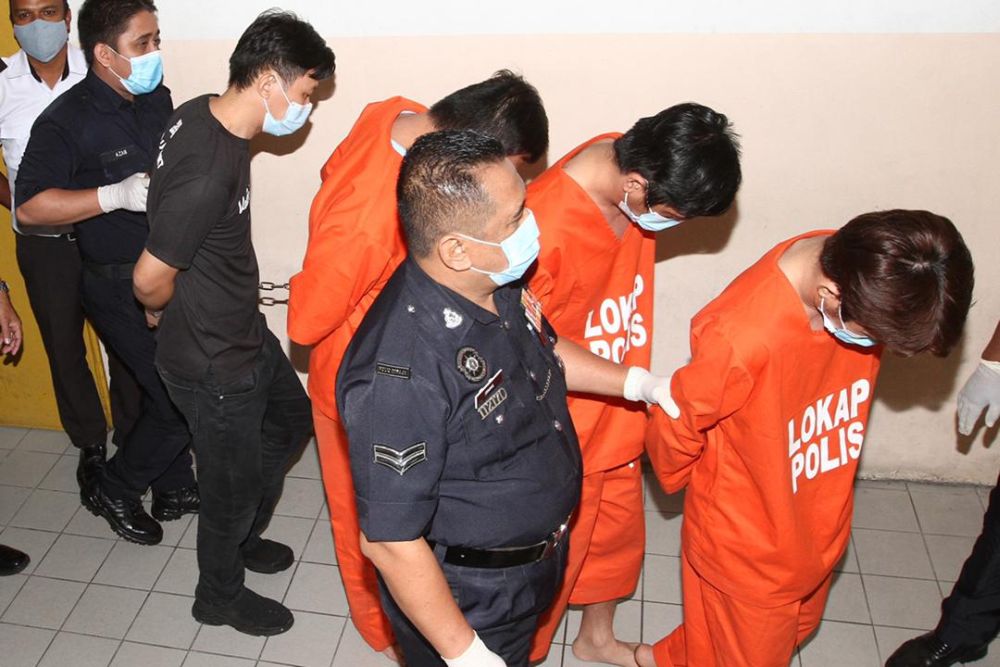JOHOR BARU, Jan 26 — An alleged drug syndicate head, his girlfriend and three other men were charged at the Magistrate’s Court here today for drug-trafficking activities that saw the seizure of more than RM340 million in narcotics by the Johor police earlier this month.
The accused, Goh Chee Kuang, 44, Lee Chia Hui, 33, Lye Chang Pung, 39, Lye Chang Lim, 35, and Bally Paw Shaw Kiat, 38, face 18 charges together.
Goh is said to be the syndicate’s alleged head; Lee is his girlfriend. Both Chang Pung and Chang Lim are siblings.
However, no plea was recorded during the proceedings held before Magistrate Nurmardiana Mamat.
Goh, Lee and Chang Lim face three charges each, while Chang Pung faces five charges. Paw faces four charges.
They were jointly charged with distributing between 102g and 210kg of several types of narcotics, including ketamine and methamphetamine.
The accused were charged with committing the offence at Taman Mount Austin, Taman Baiduri and Taman Setia Indah, here between January 9 and 15 this year.
The five were charged under Section 39B (1) (a) of the Dangerous Drugs Act 1952 and are punishable under Section 39B (2) of the same Act that was read together with Section 34 of the Penal Code which carries the death penalty upon conviction.
Prosecution was conducted by Deputy Public Prosecutors Faizal Noor Hadi and Suriani Ujang, while all the accused were represented by counsel Datuk Michael KL Chee and Kevin Quah Kai Weng.
The court then set April 26 as the case mention date pending the results of the chemical analysis report.
On January 17, Johor police chief Datuk Ayob Khan Mydin Pitchay said the raid on the alleged drug-trafficking syndicate involved the largest drug seizure in the history of the Narcotics Criminal Investigation Department (NCID).
The police have since carried out 23 raids in several locations around the city between January 8 and 23, this year which saw a total of 17 suspects aged between 17 and 62 arrested.
The operation also saw the police successfully raiding five drug storage stores and two illegal drug-processing laboratories believed to have been operating since 2018.



















